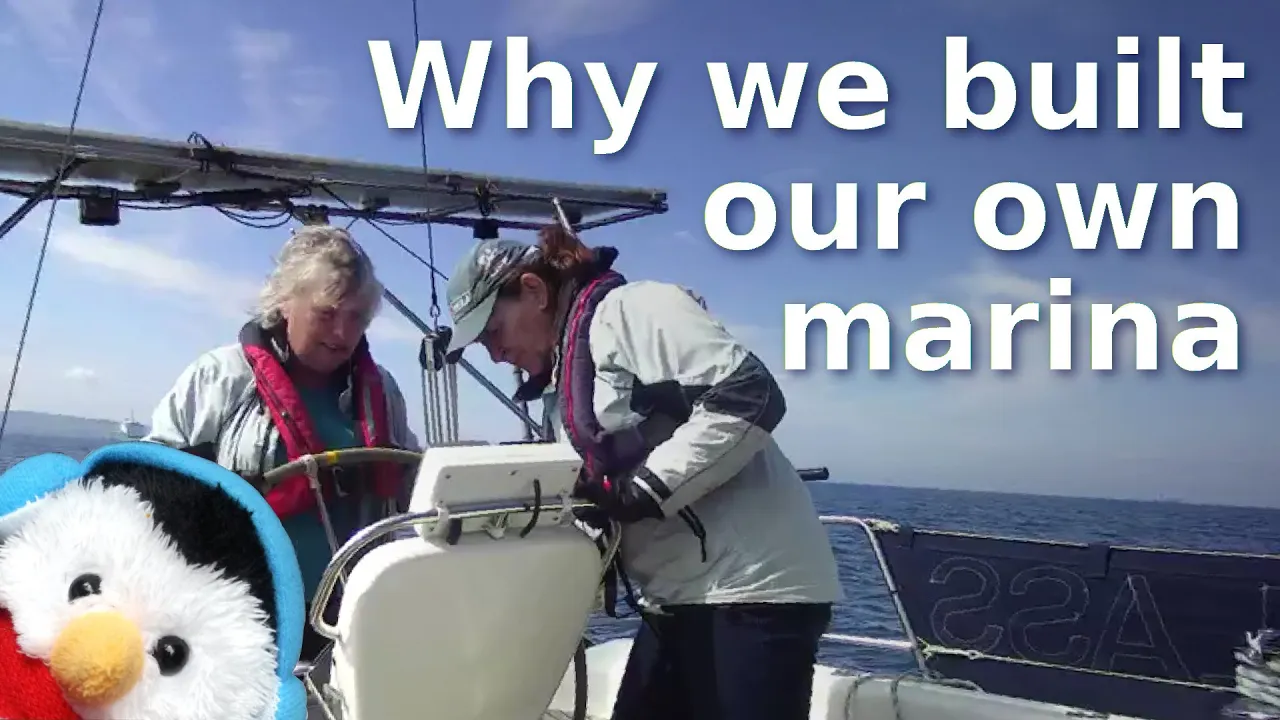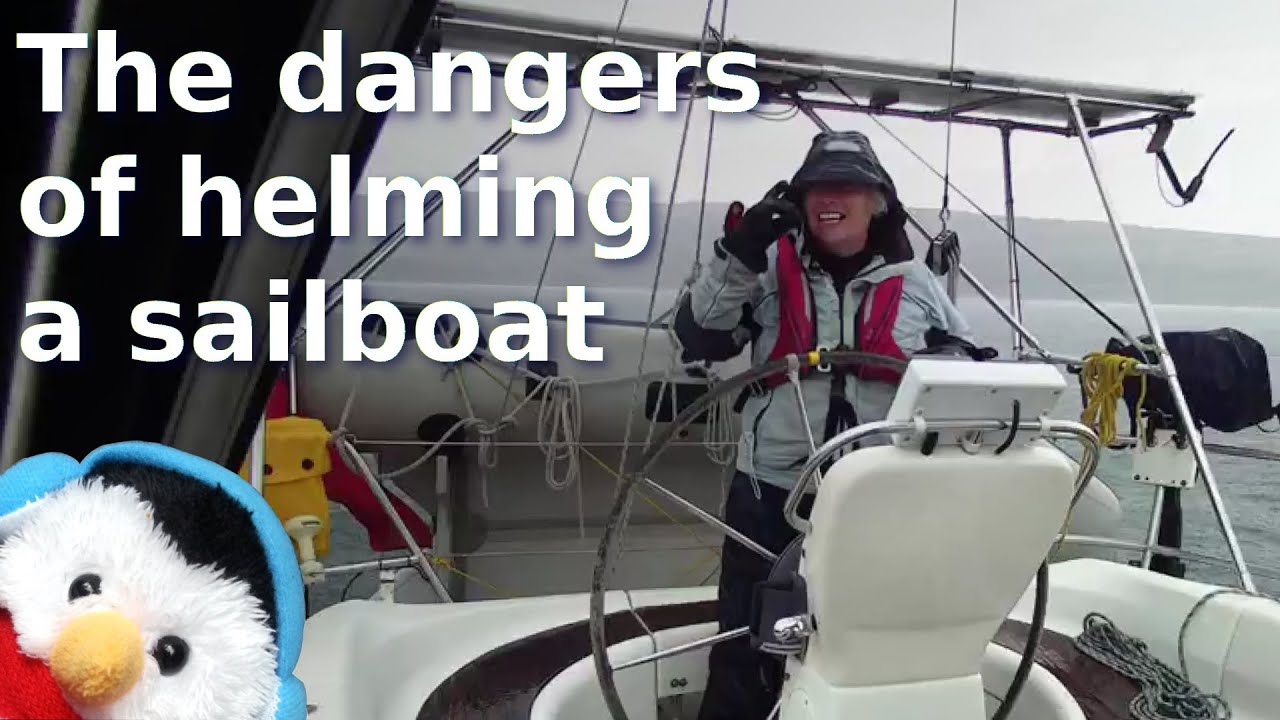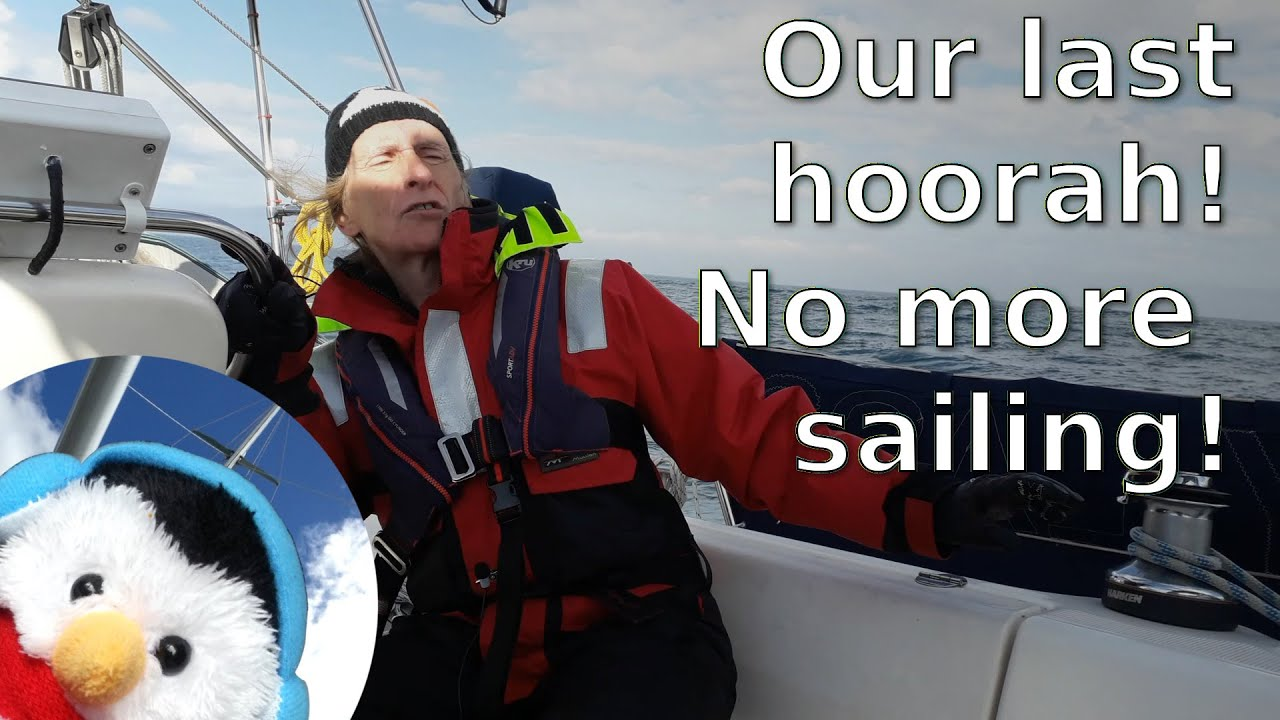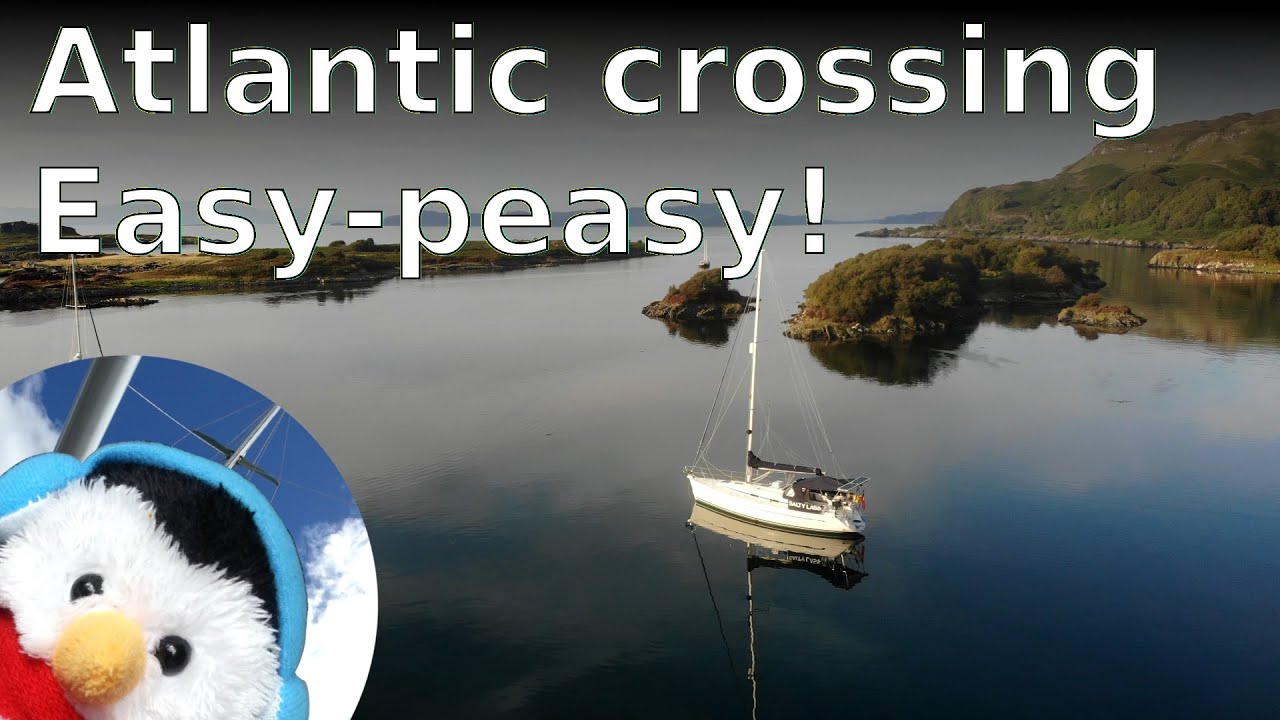Well it was really cold down at the marina, in fact it was so cold we had ice forming on the inside of the window. The staff at the marina were putting salt down on a regular basis, but you still needed to watch your step as you get off the boat, as there were quite a few times that the pontoon was white with frost. In this weeks blog we also chat about the costs of living in a marina in general terms.
This is our third winter of living in a sail boat, but this was the first time that we actually had ice forming on the inside of the windows, in truth one of the reasons for the ice was because I had put insulation up near the windows, which meant that the windows got colder than usual. The one in the mail cabin wasn't affected, but we do keep our main cabin a lot warmer than the v-berth. The other main issue we have is with condensation, the frame around the portlights are made of aluminium and they get so cold that condensation forms easily on them and on the perspex as well. Although the insulation we out up helps, we still find that we are removing the condensation from the aluminium frame and from the perspex of the window, at least every other day, we do have damp traps on board, but we breath out water faster than they can take it out. Condensation forms every where that is cold. It also forms under the bed, we have dry mat under our mattress, now that is great as it keeps our mattress dry, but we still get moisture under the dry mat, so that needs wiping off every now and then. One of the other things we do is keep the doors to our lockers open, so that air can circulate as much as possible.
Our fuel in our diesel tank was getting towards half, and while we have cold weather like we do at the moment, that is as low as we let it go, because condensation will be happening inside the tank as well so it is best to keep the fuel levels high. We store our spare fuel tanks in our v-berth, so it meant that we had to take the bed apart and get out the diesel tanks. Once we had got that done we took the opportunity to get rid of all the water that was in the bilge at that time. We had not emptied the bilge in the v-berth for a long time, which was why we had half a bucket of water at the bottom of the locker.
One of the other jobs that we have to do on a regular basis is fill up the water tanks, we find that we need to fill up our water tanks every three days, when we are in port as we use a lot of water for washing up, also we tend to keep to just using the water tank closest to the tap. We keep our tanks clean by using sterilizing tables about ½ tablet every other fill, it does mean that the water has a slight chlorine taste, but you soon get used to it, just make sure that you run the tank empty on a regular basis as you don't want the tank to get too much of the sterilizing tablet in.
Costs of living in a marina
There are two types of pontoon in a marina, a serviced pontoon and a non-surfaced pontoon. We have a serviced pontoon, which Beverley joked comes with rescue equipment, but not everybody gets those, what everybody gets is an electrical point and some pillars like ours also comes with water. The electric supplied is metered and we are using about £1.40 of electric a day. This figure only applies to Carrick marina as we have been in other marinas and we have been charged a lot more than that, for example at Bangor we were paying about £2.00 a day, it really does depend on the rate that the marina charges. Carrickfergus is a council run marina, so our electric rate appears to be smaller. than other marinas that we have been in at.
The number one cost of living in a maria, depends on the size of your boat, the marina measures from the front of the boat to the rear, so you multiply your length by their rate and that is your cost. Wider boats like catamarans can end up paying more because they are wider and they take up two berths rather than one. It is always wise to ask for a deal, even if you are only in a place for a week then you might be able to get a weekly deal. While we were in Bangor we got a winter deal, which meant that we only paid half price for all of the winter, while in Carrickfergus we got one month free if we paid for the entire year. When we did our calculations, we calculated that a six month winter contract plus two months was cheaper than a year contract, but if it got to three months plus the winter, then it was cheaper for the year, which was why we went for the year contract, it was just the best we could do at the time.
After the marina costs, the main overall cost of living in a sail boat is the cost of heating. For us this winter, we are using the little fan heater, during the day time. We find that the fan heater is more than sufficient to heat the boat and as electric is so cheap, on a cost basis it is our best solution. However at night, the temperature gets really cod and the fan heater is not enough to keep the boat warm, so we use the diesel heater for that. We usually find that we need about £2 per night to keep the boat warm. On top of the diesel, after the heater has been running for 2000 hours, then it needs servicing. So you can send the unit away and that costs £150 for a service or you can buy the service kit at £20 and learn to service it yourself.
So in summary the cost of living on a sail boat are
- Marina fees - The cost of this vary wildly depending on the size of your boat, the location of the marina, the time of year and the length of time that you are beathing for. Always see if you can get a deal, for example you might get one month free for taking out a years contract, or you might get a winter bearthing contract. Regardless of what deal you can get, this will always be the most expensive cost
- Heating costs - In winter a boat can get really cold, so thinking about the cost of heating is important, we have a diesel heater and a fan so our heating costs are made up of
- Fuel costs - The fuel costs needed to heat your boat
- Service costs - Some heaters need a regular service and that can be a significant cost until you learn how to service your heater
- Electric heaters - There are different heaters and these need electric
- Gas - We cook using gas and we use a small cylinder of gas every month
- Electric - We use electric for other equipment on the boat, so there is a cost to running those













